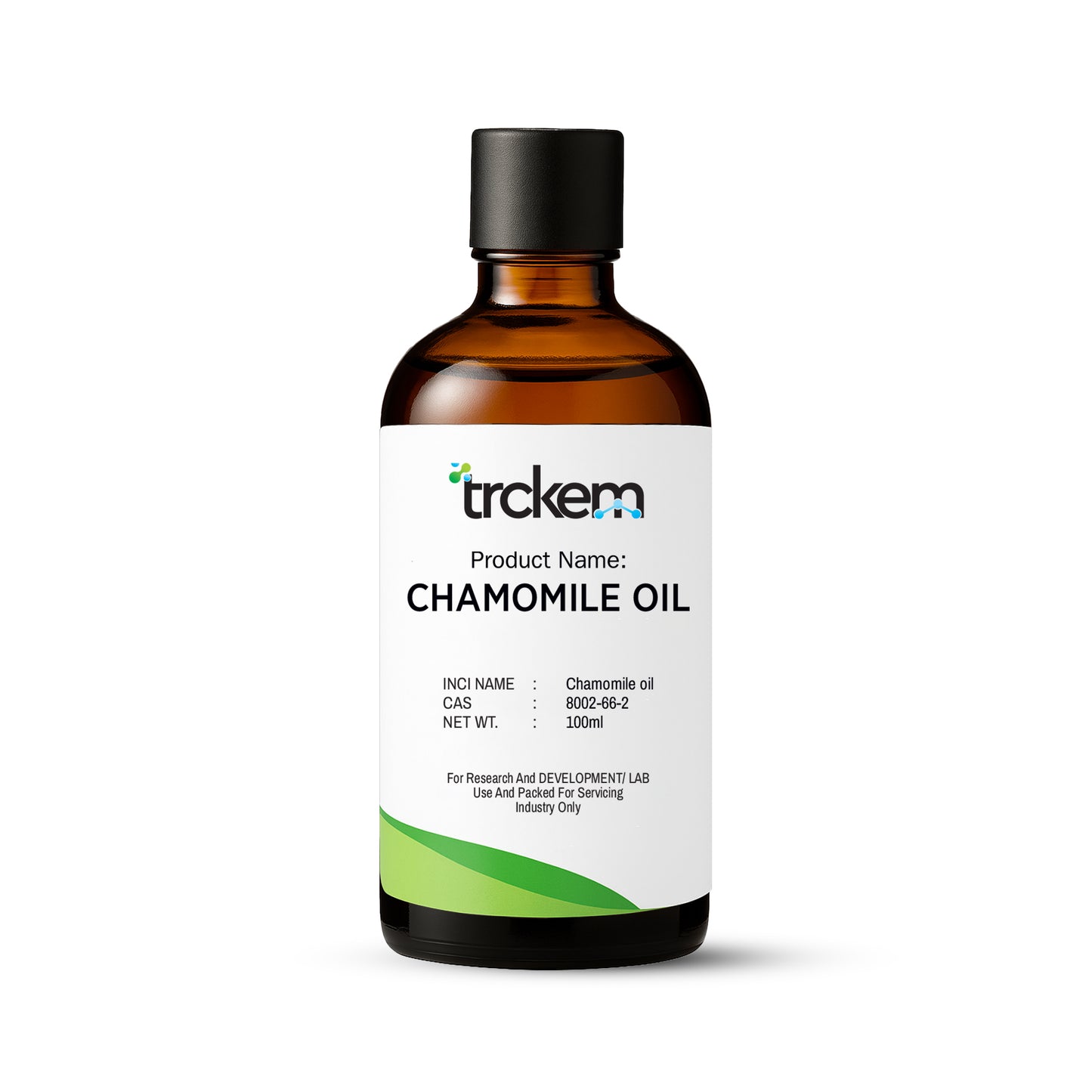
FAQ (Frequently Asked Questions)
Q1: What is Chamomile Oil?
A1: Chamomile oil is an essential oil extracted from the flowers of the chamomile plant, primarily from two species: German chamomile (Matricaria recutita) and Roman chamomile (Anthemis nobilis). It is renowned for its soothing properties and is widely used in personal care products for its calming effects on the skin and mind.
Q2: What are the benefits of using Chamomile Oil in personal care products?
A2: Chamomile oil offers several benefits in personal care formulations:
Skin Soothing: Chamomile oil is known to calm skin irritation and reduce inflammation, making it beneficial for conditions like eczema and rosacea.
Antiseptic and Anti-inflammatory: Its antiseptic and anti-inflammatory properties can help in treating acne and soothing irritated skin.
Hair Care: Chamomile oil can enhance hair health by soothing the scalp and adding shine to the hair.
DIY Cosmetica
+5
Verywell Health
+5
Healthline
+5
Aromatherapy: Its calming scent is used in aromatherapy to promote relaxation and improve sleep quality.
Q3: In which personal care products is Chamomile Oil commonly used?
A3: Chamomile oil is incorporated into various personal care items, including:
Skincare Products: Facial cleansers, toners, moisturizers, and body lotions.
Hair Care Products: Shampoos, conditioners, and scalp treatments.
Aromatherapy Products: Massage oils, bath salts, and diffusers.
Deodorants and Perfumes: Due to its pleasant, calming fragrance
Q4: What is the CAS Number and INCI Name of Chamomile Oil?
A4: The Chemical Abstracts Service (CAS) Numbers and International Nomenclature of Cosmetic Ingredients (INCI) names for chamomile oil vary depending on the species:
German Chamomile (Matricaria recutita): CAS Number 8002-66-2; INCI Name Chamomilla Recutita (Matricaria) Flower Oil.
INCI Beauty
+3
SpecialChem Cosmetics
+3
The Good Scents Company
+3
Roman Chamomile (Anthemis nobilis): CAS Number 8015-92-7; INCI Name Anthemis Nobilis Flower Oil.
Q5: Is Chamomile Oil safe for all skin types?
A5: Chamomile oil is generally considered safe for most skin types, including sensitive skin. However, individuals with allergies to plants in the Asteraceae family (such as ragweed, marigolds, or daisies) should perform a patch test before using products containing chamomile oil to ensure no adverse reactions occur.
Q6: Can Chamomile Oil cause allergic reactions?
A6: Although uncommon, some individuals may experience allergic reactions to chamomile oil, especially those allergic to related plants. Symptoms can include redness, itching, or swelling. Discontinue use if any adverse reactions occur and consult a dermatologist if necessary.
Q7: How should Chamomile Oil be stored in personal care formulations?
A7: Chamomile oil should be stored in a cool, dry place away from direct sunlight to maintain its efficacy and extend its shelf life.
Q8: Is Chamomile Oil suitable for vegan and cruelty-free products?
A8: Yes, chamomile oil is a plant-derived ingredient and is suitable for inclusion in vegan and cruelty-free personal care products.
Q9: Are there any regulations regarding the use of Chamomile Oil in personal care products?
A9: Regulations can vary by region. It's essential to consult local regulatory guidelines to ensure compliance when formulating products with chamomile oil.
Q10: Can Chamomile Oil be used in organic personal care products?
A10: If the chamomile oil is sourced from organically grown chamomile flowers and processed according to organic standards, it can be used in organic personal care formulations.


